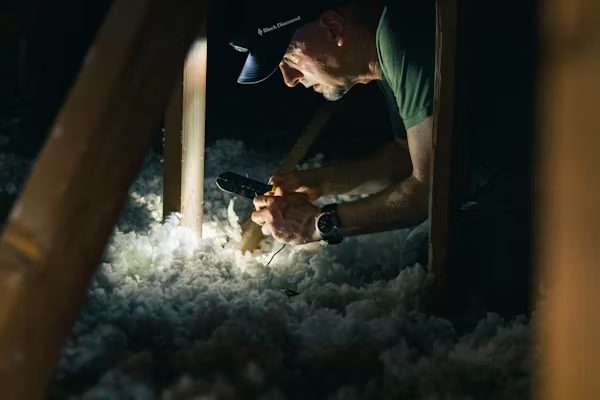The post How to Find Spray Foam Insulation Contractors Serving Dublin, Ireland appeared first on UK Construction Blog.
Foam insulation comprises two liquid chemicals that combine when applied, creating foam when sprayed. Professional technicians should be used during installation and all home occupants should vacate until it has set completely, but also consider the following information before hiring anyone to take care of the job.
Cost
Costs associated with spray foam insulation (SFI) depend upon its type and thickness, as well as whether open-cell or closed-cell foam is chosen; open-cell foam is typically less costly. Homeowners can purchase DIY kits that allow them to install SFI themselves; however, professional contractors provide many advantages that make them a superior option.
Professional contractors possess the knowledge and experience required for consistent coverage and expansion throughout the project, helping homeowners select an individualized solution tailored specifically to their individual needs and budgets. Furthermore, professionals may even save homeowners money on utility bills by suggesting energy-efficiency upgrades suitable for their homes.
Prior to applying SFI material (https://www.treehugger.com/chemicals-spray-polyurethane-foam-how-can-something-so-toxic-be-considered-green-4858640) a contractor must thoroughly prepare the installation area for installation by cleaning it of dust, dirt and other debris. Furthermore, existing insulation that doesn’t meet code may need to be removed, at which point the cost may add up quickly; also remember to follow proper disposal methods since any leftover materials could become combustible or harmful to the environment.
Environmental Impact
SFI has a lower environmental footprint than traditional materials like fiberglass insulation, due to the fact that its primary ingredient, polyol, is made up of renewable resources like castor oil or soya and its production is less damaging to the planet during production as well as application processes than more traditional alternatives.
Spray foam acts as an air barrier to make a home more energy efficient, thereby decreasing energy usage and global warming. Furthermore, this tight seal created by spray foam virtually prevents harmful indoor pollutants such as volatile organic compounds (seen here), water vapor (VAP), odors (VOA), radon gas and other contaminants that accumulate over time in HVAC filters and vents from entering.
Spray foam poses one potential environmental hazard in its creation process: its blowing agent contains chemicals with high global warming potential, which then escape into the atmosphere when applied to buildings – contributing further to global climate disruption and contributing to our current global climate crisis.
Safety
SFI is a type of polyurethane and polyisocyanurate foam used to insulate surfaces directly. It begins as two separate liquids that are mixed and applied directly, quickly expanding to fill gaps and form tight seals in just minutes. Spray foam is highly effective and can save homeowners money on energy bills while helping prevent mold growth, protect drywall frames and frames as well as deter pests from entering homes.
SFI may be beneficial, but its chemical compounds used to manufacture it pose risks that aren’t without risk to homeowners and builders alike. Isocyanates found within this type of foam are linked to health conditions like asthma and other respiratory issues; for this reason it’s essential that green building contractors take safety seriously when using this type of insulation material.
Insulation spray can be difficult to install properly. If the spray isn’t evenly applied or there are gaps between wall studs that are too wide, insulation will become ineffective and messy, requiring considerable cleanup efforts. Therefore, for best results it’s wise to hire an experienced spray foam insulation contractors who understands how best to apply spray insulation. Such an expert should have all of the tools and equipment necessary for successful application of this type of insulation.
Energy Efficiency
SFI serves a dual function as both insulation and an air barrier, sealing all gaps that allow airflow from warm or cool rooms out of your home and saving on energy costs over time. Energy savings may eventually offset installation costs.
Spray foam not only offers energy-saving qualities, but is also an effective sound insulator – this feature being particularly advantageous for commercial facilities where reduced noise levels can increase productivity while making working or visiting spaces more comfortable for staff or customers.
SFI’s energy efficiency can save money on electric bills, heating and cooling expenses and maintenance expenses. A high-quality spray foam insulation could even slash utility costs by 50% when compared with typical structures.
An effective HVAC system works to minimize heat loss during winter and block hot outdoor air during summer, making your HVAC system work less efficiently while simultaneously decreasing energy consumption and your monthly costs.
As such, when it comes to adding SFI to your home, it is imperative that you consult a certified professional installer in order to ensure it’s done correctly. An improper installation could compromise airtightness and energy savings as well as cause potential damage to roof structures or render your property unmortgageable in the eyes of surveyors – however a certified installer can provide all the paperwork required by lenders or valuers when selling off the property later.


